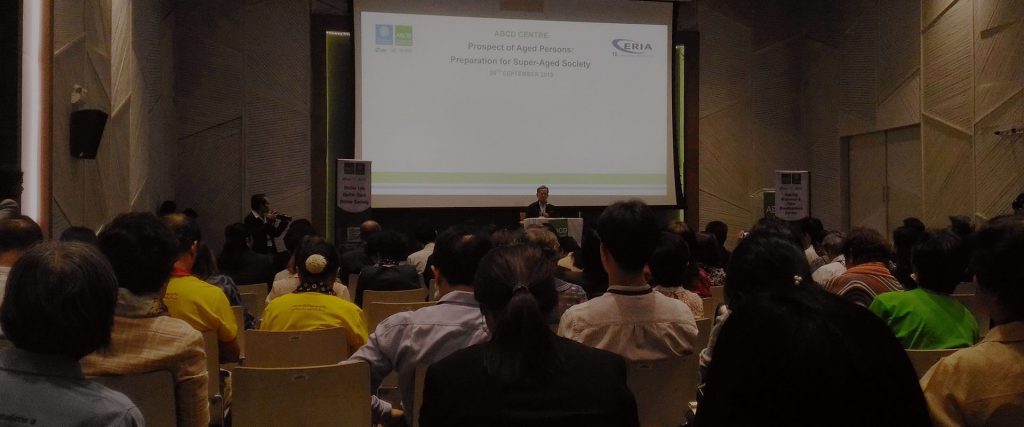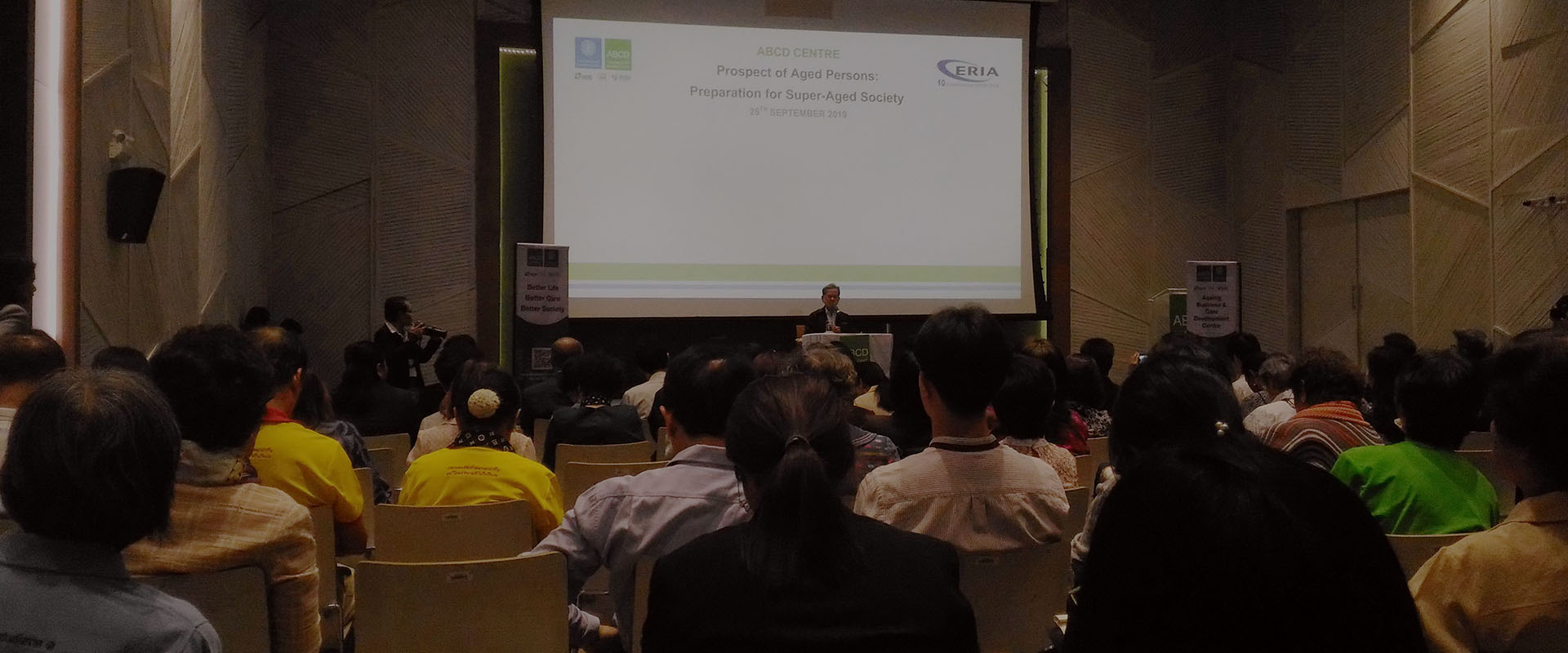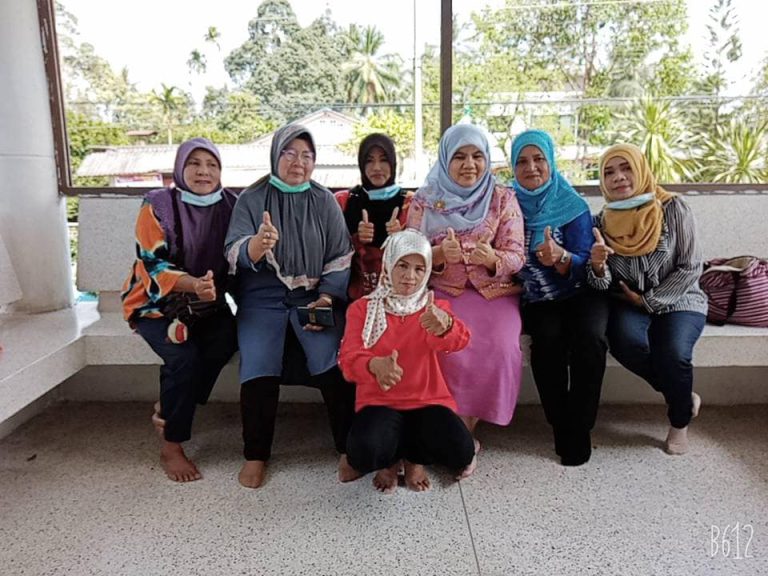Story: Woraphong Wechamaleenonda
Thai society has begun to anticipate and prepare for its transition into a super-aged society. The healthcare and human resource management sectors of the government are in the process of implementing new measures in response to demographic changes. However, our entry into a super-aged society will bring sweeping changes to society that require structural adjustments beyond the purview of the government. Every facet of society will have to play a part in this reorganization.
Research conducted by the Ageing Business & Care Development Centre (the ABCD Centre) at the Faculty of Commerce and Accountancy, Thammasat University, unveils the current deficiencies and strengths of Thailand’s preparedness for an ageing society. The findings became the catalyst of a conference called “The Hopes of the Elderly: Preparations Before Thailand Becomes a Full-Fledged Ageing Society”, held on November 25th 2019 at the Thai Health Promotion Foundation. In the hopes of bolstering Thailand’s preparedness for an aging society, the conference members put forward research findings, policy proposals and practical suggestions for the government, private interests and public organisations.
In his opening remarks, Associate Professor Pipop Udorn, Dean of the Faculty of Commerce and Accountancy, warned that the world’s ageing population crisis will continue to grow as people’s life expectancies lengthen. Studies show that individuals in good health at the age of 50 can live to 90, and predict that more than half of the population born after 2010 will live to become centenarians, suggesting that the threshold of old age may have to be adjusted from 60 to 80 years old in the future. A reluctance to have children among younger generations will also contribute to a deficit of individuals in the working age population, and may mean that the retirement age will have to be raised above 60 years of age.
In Thailand, which will become a super aged society in less than 10 years, preparatory changes will have to be made to policies on employment and education. Graduating from university in one’s early twenties and then putting that education to use in another 40 years of work will become an unviable way of structuring life in future. To keep pace with the rapid rate at which knowledge is changing in the present, we will have to reconfigure our approach to education to that of ‘life long learning’ and interlace online and offline formats so that students are able take classes from anywhere, at any time. In this regard, the private sector will have to help sponsor the infrastructure, innovation and enterprise that will allow older people to find fulfilment, for we may not be able to wait for the government to administer all the changes needed

An Ageing Strategy
Though the imminent transition into a super-aged society may be a source of panic to many, Prof. Dr. Pravet Wasi’s perspective is that every challenge the human race encounters leaves it stronger than before. However, we must be guided by our compassion and a strong conceptual apparatus in our response to change; then, like the strong trunk and roots of a tree that gives rise to bountiful branches and fruit, we will have the proper foundation for the development of innovative solutions. With that, Dr. Wasi outlines the ‘Thailand Graceful Aging Strategy’, which will be based on five main concepts:
- Samasthiti (Equal-standing). There must be justice for everyone in Thai society, whether they be children, disabled, elderly etc. Equity is the most important foundation to living with one another. Where there is justice, people care for one another and the collective, and where there is injustice, chaos and violence multiply.
- Samma Sankappa (Right intention). There must be structures that facilitate justice. Local communities are the fabric of Thai society. They must be supported on all eight facets of community development — commerce, spirituality, society, environment, culture, healthcare, education and democracy — in an interconnected manner. Building the strength and resilience of local communities will fortify the structure of Thai society as a whole.
- Strategies of Knowledge Production. We must seek out knowledge, on the level of technical skills and social organization, that will strengthen ageing societies around the world. Disseminating this knowledge throughout the country will help elderly individuals care for themselves more capably, and educate families and communities on how to support one another. Policy-makers will write more constructive legislation. Universities must step up to their crucial role in the development and circulation of knowledge.
- Effective Administrative Systems. Administrative services must function effectively, equitably and efficiently on every level until we have a fully-developed caregiving system, from personal care, house visits, familial and community support systems, to the operation of public and private hospitals.
- We must develop a society with strong social connections, rather than one defined by self-interest. We must engage in collective learning and action that evolves into a transformation of the spiritual and social foundations of our society.
‘Design The Life, Define the Country’
Following Dr.Wasi’s address, Dr. Thatchai Kiratipong, a representative of the Strategic Information Office, gave a keynote lecture titled ‘Design the Life, Define the Country’. Thai society first has to acknowledge that it has aged, he says, because it has been evolving into an aging society over the last decade. However, the ramifications of an aging society aren’t just a problem for the elderly, their families and the government, but a change that concerns us all. Research shows that the majority of Thai families conform to the traditional extended family structure, with one provider and five dependents all living hand to mouth. Wasteful and irresponsible behaviour often lands them in a huge sum of debt. The key takeaway is that the ratio of providers to dependents is projected to diminish from 67 providers per 100 dependents in 2010 to 55 per 100 in 2040. Therefore, we must amend conditions of employment and people’s spending habits towards a new ethos of “find work, learn to support yourself and collect savings to share with others”.
- There needs to be a reconceptualization of work in Thai society, because technology is encroaching upon jobs performed by human labor. The workforce must be reskilled and given access to lifelong education. Universities should open admission to working-age and elderly students, and reform their pedagogical structures towards an interdisciplinary curriculum. Furthermore, a sector of workers must be lifted out of the trap of low-paying occupations, such as administrative work or traditional agriculture.
- We must learn to support ourselves effectively, curb wasteful and reckless habits, and make use of technology for mindful consumption.
- Saving habits should be more commonplace than they are present, and 4. These savings should be habitually shared.Everyone should be working towards the improvement of local communities and society as a whole.
The principals laid out above are pivotal to the survival of ageing societies in the 21st century. However, research findings have revealed some missing hinges in Thai society: we still need systemic research that holistically captures the current situation of the elderly population, a general awareness of their behaviors and needs of the elderly, and economic opportunities for them. In light of this, further research is needed to fill in the gaps and build a business ecosystem for Thailand’s elderly population.



